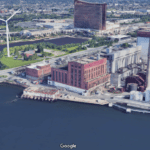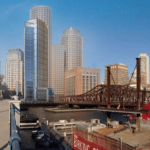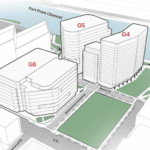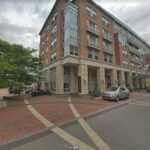
Potential Marina Investors Need to Navigate Hazards
Massachusetts is blessed with abundant navigable harbors ideal for marinas. These properties are in high demand, but they present special due diligence issues.

Massachusetts is blessed with abundant navigable harbors ideal for marinas. These properties are in high demand, but they present special due diligence issues.

The Kraft family’s long search for a professional soccer stadium in the Boston area could receive fast-track approval through an amendment to the House’s economic development bill that gives the New England Revolution owners three years to get a facility built.

The Supreme Judicial Court this week handed state environmental regulators a new assignment to revamp how waterfront developments are reviewed and approved, potentially affecting zoning frameworks in coastal communities from Beverly to Provincetown.

Rezoning that would clear the way for a pair of new towers on Boston Harbor is back in limbo after the Massachusetts Supreme Judicial Court upheld a lower court ruling.
If the commonwealth can set predictable, well-defined rules for property owners and stakeholders in the context of climate-informed coastal development regulations, then we can continue to create vibrant waterfronts and protect our future economic growth.

The Suffolk Superior Court dealt a major setback in April to The Chiofaro Co,’s proposed 600-foot mixed-use tower at the Harbor Garage site near the New England Aquarium in Boston. But the plaintiffs’ victory may only be temporary.
Legislators on Beacon Hill urgently need to step in and clarify the rules for waterfront development in Massachusetts following a bombshell ruling in a dispute over a downtown Boston tower.

A Suffolk Superior Court justice struck down the city of Boston’s new waterfront zoning that would have cleared the way for The Chiofaro Co.’s 600-foot-tall, 865,000-square-foot Pinnacle skyscraper at Central Wharf.

CBT’s Maren Reepmeyer played a key role in designing Fidelity Investments’ Seaport World Trade Center at Commonwealth Pier, redesigning office space for collaboration, eliminating the aging meeting hall and adding new retail on Seaport Boulevard and outdoor public spaces on the Boston Harborwalk.

Another prime development site is coming up for grabs in the Seaport District as Gillette Corp. offers up a 2.5-acre parcel bordering Fort Point Channel.

As it studies future options for its 34-acre World Shaving Headquarters property in South Boston, Gillette Co. is seeking to remove some state oversight over what could be built next on portions of the prime waterfront real estate.

A possible realignment of the Boston Harborwalk and earthen berm designed to repel Fort Point Channel storm surges are proposed as part of Related Beal’s new 1.1-million-square-foot development in Boston’s Seaport District.

“Not in my backyard” could be the state motto in Massachusetts, where major real estate developments routinely endure costly legal challenges. The Chiofaro Co.’s proposed 600-foot mixed-use tower at the Harbor Garage site near the New England Aquarium in Boston is an example.

A judge’s ruling in a high-stakes dispute over proposed new zoning will keep a pair of major Boston waterfront developments on the drawing boards rather than closer to groundbreaking.

An attorney for Boston’s Battery Wharf Hotel condo owners acknowledges some inadvertent violations of public access and programming and said the property “has been and continues to be welcoming of the public.”

The 150-room hotel has been charging $1,500 for wedding ceremonies on the Boston Harborwalk, installed an outdoor bar called the Battery Wharf Grille on public open space and closed off public balconies and historic exhibit space for private functions, according to Boston-based CLF.

Too often when developers fail to prepare for climate change, taxpayers are called upon to bail them out when the inevitable damage happens. But now it seems that cities across Massachusetts and even the state could increasingly be on the hook financially if they don’t take substantive steps to plan for these changes.

The InterContinental Boston Hotel installed an outdoor bar and private seating bordering the Boston Harborwalk “in the spirit of activating the waterfront,” according to its attorney, but has redesigned its patio and removed signs discouraging the public from using the area.

State regulators have ordered the InterContinental Boston Hotel to remove an outdoor bar and signs that discourage the public from setting foot on its rear lawn and patio overlooking the Fort Point Channel.